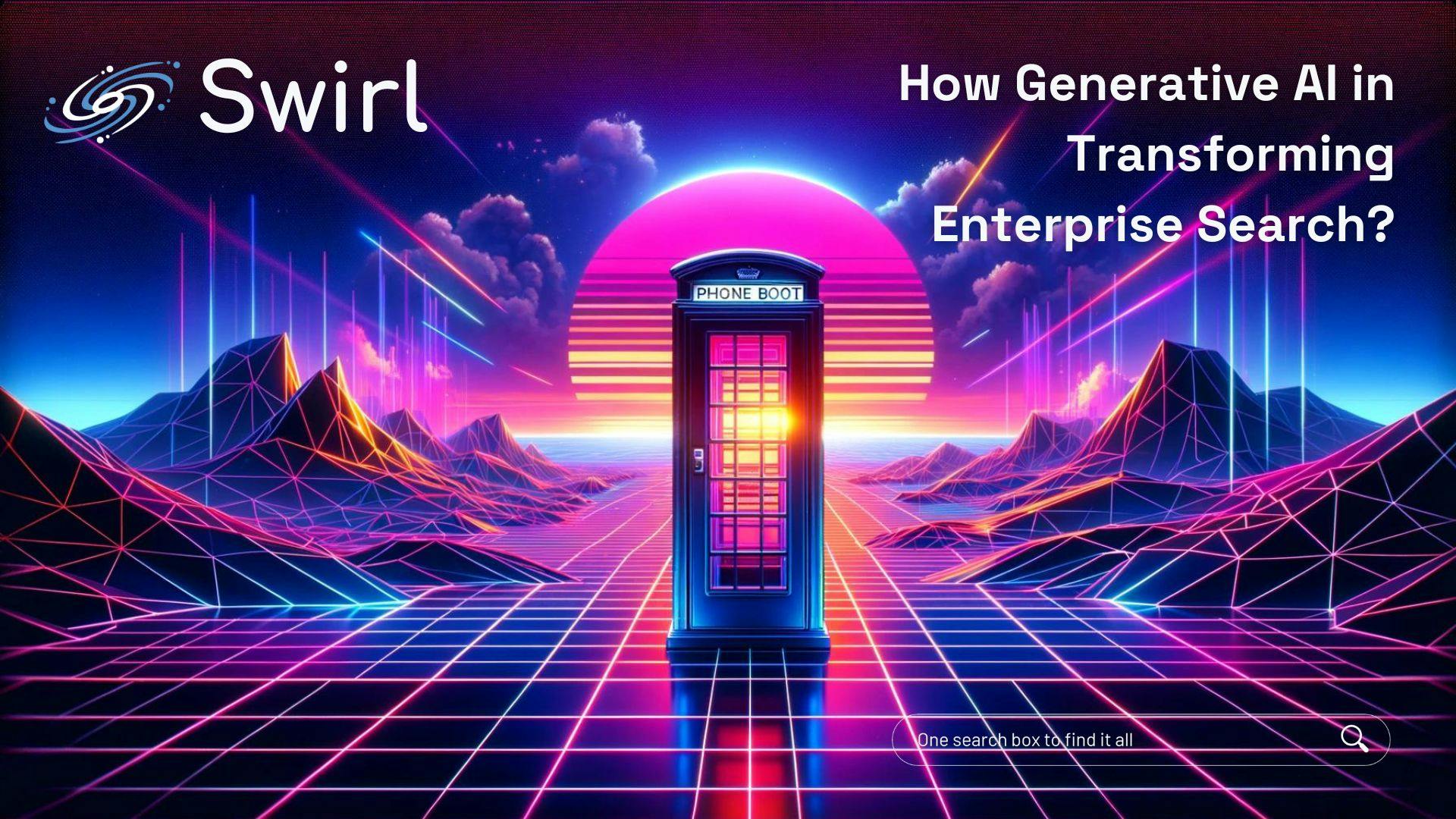How Generative AI is Transforming Enterprise Search?

Enterprises today face an ironic challenge – drowning in data yet starved for insights. As information silos proliferate, locating the correct data at the right time grows increasingly complex. Generative AI promises to revolutionize enterprise search, empowering organizations to extract critical insights, foster innovation, and optimize decision-making.
Unlocking Knowledge Through Contextual Understanding
Powered by large language models (LLMs) like GPT-3, generative AI possesses an unprecedented capacity for understanding natural language queries in context. Traditional keyword-based systems still need to be improved, often needing help deciphering the intent behind complex or nuanced questions. Generative AI, however, allows for more intelligent search across structured and unstructured data sources by grasping the more profound meaning within a user’s query.
Bidirectional Search Through Conversational Interfaces
Generative AI enables conversational interfaces for enterprise search, allowing users to interact via natural language. Employees can pose questions like they might ask a knowledgeable colleague. Questions can be layered, refined, and iterated interactively. Models grasp context and intent, forming relevant, synthesized responses across disjointed data sets.
Tailoring Search to Enterprise Needs
Beyond conversational interfaces, customization is a growing focus in generative AI for search. Enterprises can train LLMs on industry-specific knowledge and internal jargon, leading to more precise and contextually relevant results. For example, a legal firm might train a model on case law and legal terminology, while a manufacturing company might tailor it to understand process documentation and design standards.
Democratizing Access to Enterprise Knowledge
Traditional search often assumes users have an understanding of where specific information resides and requires familiarity with complex system queries. Generative AI removes such friction by allowing users to pose questions in everyday language from any device. The democratization of search speeds up knowledge discovery and empowers frontline employees who may lack domain-specific technical expertise.
Extracting Insights from Unstructured Data
Most enterprise information resides in unstructured formats like documents, emails, and chats. Yet this data goldmine remains untapped mainly because keyword search lacks the nuanced understanding necessary to extract insights. Generative AI excels at comprehending language, allowing it to rapidly analyze thousands of documents, surfacing non-obvious connections and potential relationships between data points.
Surfacing Proactive Insights**
Additionally, generative models excel at synthesizing coherent summaries from disparate information scattered across numerous sources. This is more than just streamlining access; it facilitates understanding the “big picture.” Generative AI has immense potential for enabling automated knowledge discovery at an unprecedented scale. By continuously “reading” and understanding enterprise data, models can uncover patterns and anomalies and predict trends that humans might never perceive – turning enterprise data into proactive, invaluable business intelligence.
Reduced Reliance on Indexing
Traditional enterprise search relies heavily on manual indexing of data sources, an enormous effort given the exponentially growing data. With indexing, content remains visible.
Generative AI reduces this dependency by directly querying data in situ. Enterprise search becomes more dynamic – no longer constrained by what has been indexed in advance. This results in a more real-time and comprehensive view.
The Future of Enterprise Search
Large language models underpinning generative AI are still evolving rapidly. As these models advance, enterprise search stands to achieve unprecedented intelligence and autonomy. The age of tedious data hunting gives way to automated discovery, augmenting decision-making with insights proactively surfaced by sophisticated algorithms. However, careful attention must be paid to bias, ethics, and security issues to ensure these systems evolve responsibly and avoid potential harm.
Beyond Search: Generative Capabilities Enhance Content Creation
Finally, it’s worth highlighting that generative AI is poised to transform enterprise functions beyond search. LLMs can generate summaries, reports, and draft marketing copy, freeing human time for higher-order tasks.
As we move forward, the role of Generative AI in enterprise search will likely grow, driven by its ability to provide more relevant, context-aware, and efficient search experiences.
